7 start with J start with J
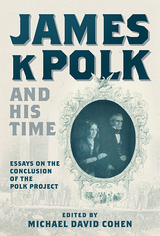
This collection arose out of a 2019 conference to commemorate the completion of the fourteen- volume Correspondence of James K. Polk. Its scholarship—which pays tribute to the Polk Project itself, as well as to the controversial nature of the Polk legacy—will result in a significant reinterpretation of the eleventh US president.
Contributors include John F. Polk, who examines the ways history has mischaracterized almost the entire Polk family tree, and Kelly Houston Jones, who investigates the family’s investments in slave-based agriculture. The fascinating life of Elias Polk, a man enslaved by the president, is compellingly related by Zacharie W. Kinslow. Asaf Almog analyzes the persistence of labels: Polk and fellow Democrats labeled their Whig opponents “Federalists,” he argues, with both rhetorical and substantive aims. Michael Gunther analyzes Polk’s authorization of the Smithsonian Institution and the Department of the Interior, seemingly at odds with his devotion to small government.
Taken together, the twelve essays unveil a more complex James K. Polk than the narrowly focused Jackson protégé and proponent of Manifest Destiny we often hear about. He was politically partisan but inspired by history and grounded in principle. His family’s long reliance on nonwhite Americans’ losses of freedom and land informed his policies on slavery and Indian removal, and the nature of the legislation at hand determined when he promoted a larger or a smaller federal government. James K. Polk and His Timehelps us to unde
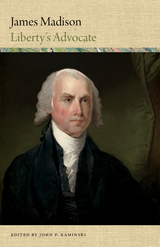
America has had few political thinkers who have rivalled James Madison. The son of a wealthy planter, Madison was an unhealthy child and was beset by physical infirmities throughout his long life, and grew into a cerebral man. Madison left Virginia to attend the College of New Jersey, but returned to his native state after completing his studies. Though he aspired to be a college professor, Madison instead went into public service and became one of the most influential, guiding voices of the Founding Era. Madison’s Virginia Plan would be used as a blueprint for the Constitutional Convention, where the Articles of Confederation would be replaced with a new Constitution that bore traces of Madison’s influence throughout.
Editor John Kaminski has gathered a remarkable collection of quotations by and about James Madison for the third installment of his Word Portraits of America’s Founders series. Through these words by and about Madison, we learn more about one of the country’s most influential Founding Fathers, who held a lifelong commitment to liberty and opposed oppression.
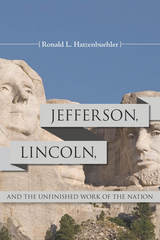
In this groundbreaking new study—the first extended examination of the ideas of Lincoln and Jefferson—Hatzenbuehler provides readers with a succinct guide to their opinions, comparing and contrasting their reasoned judgments on America’s republican form of government. Each chapter is devoted to one key area of common interest: race and slavery, the pros and cons of political parties, state rights versus federal authority, religion and the presidency, presidential powers under the Constitution, or the proper political economy for a republic. Relying on the pair’s own words in their letters, writings, and speeches, Hatzenbuehler explores similarities and differences between the two men on contentious issues. Both, for instance, wrote that they were antislavery, but Jefferson never acted on this belief, while Lincoln moved toward a constitutional amendment banning slavery. The book’s title, taken from the Gettysburg Address, builds on both presidents’ expectations that Americans should dedicate themselves to the unfinished work of returning the nation to its founding principles.
Jefferson and Lincoln wrestled with many of the same issues and ideas that intrigue and divide Americans today. In his thought-provoking work, Hatzenbuehler details how the two presidents addressed these issues and ideas, which are essential to understanding not only America’s history but also the continuing influence of the past on the present.
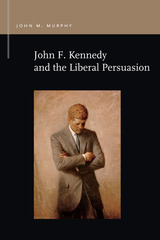
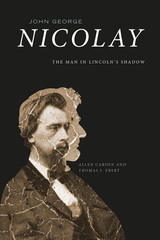
This study represents the first scholarly biography of this self-effacing man so long overshadowed by Lincoln. Drawing on extensive research in the Nicolay Papers, Allen Carden and Thomas Ebert trace Nicolay’s childhood arrival in America to his involvement in journalism and state government in Illinois. Acquainted with Lincoln in Springfield, Nicolay became a trusted assistant selected by Lincoln to be his private secretary. Intensely devoted to the president, he kept the White House running smoothly and allowed Lincoln to focus on the top priorities. After Lincoln’s death, Nicolay’s greatest achievement was his co-authorship, with his White House assistant, John Hay, of the first thoroughly documented account of Lincoln’s life and administration, a work still consulted by historians.
“Nicolay,” Carden and Ebert write, “did not make Lincoln great, but he helped make it possible for Lincoln to achieve greatness.” An essential addition to Lincoln studies, this edifying volume reveals not only how Nicolay served the Great Emancipator during his administration but also how he strove to preserve and shape Lincoln’s legacy for generations to come.
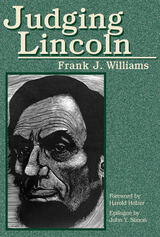
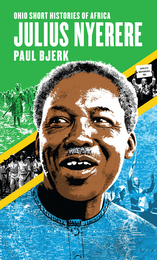
With vision, hard-nosed judgment, and biting humor, Julius Nyerere confronted the challenges of nation building in modern Africa. Constructing Tanzania out of a controversial Cold War union between Tanganyika and Zanzibar, Nyerere emerged as one of independent Africa’s most influential leaders. He pursued his own brand of African socialism, called Ujamaa, with unquestioned integrity, and saw it profoundly influence movements to end white minority rule in Southern Africa. Yet his efforts to build a peaceful nation created a police state, economic crisis, and a war with Idi Amin’s Uganda. Eventually—unlike most of his contemporaries—Nyerere retired voluntarily from power, paving the way for peaceful electoral transitions in Tanzania that continue today.
Based on multinational archival research, extensive reading, and interviews with Nyerere’s family and colleagues, as well as some who suffered under his rule, Paul Bjerk provides an incisive and accessible biography of this African leader of global importance. Recognizing Nyerere’s commitment to participatory government and social equality while also confronting his authoritarian turns and policy failures, Bjerk offers a portrait of principled leadership under the difficult circumstances of postcolonial Africa.
READERS
Browse our collection.
PUBLISHERS
See BiblioVault's publisher services.
STUDENT SERVICES
Files for college accessibility offices.
UChicago Accessibility Resources
home | accessibility | search | about | contact us
BiblioVault ® 2001 - 2024
The University of Chicago Press









